Infinite jester
The San Francisco Opera’s season-opening Rigoletto represented the company’s most potent offering in years
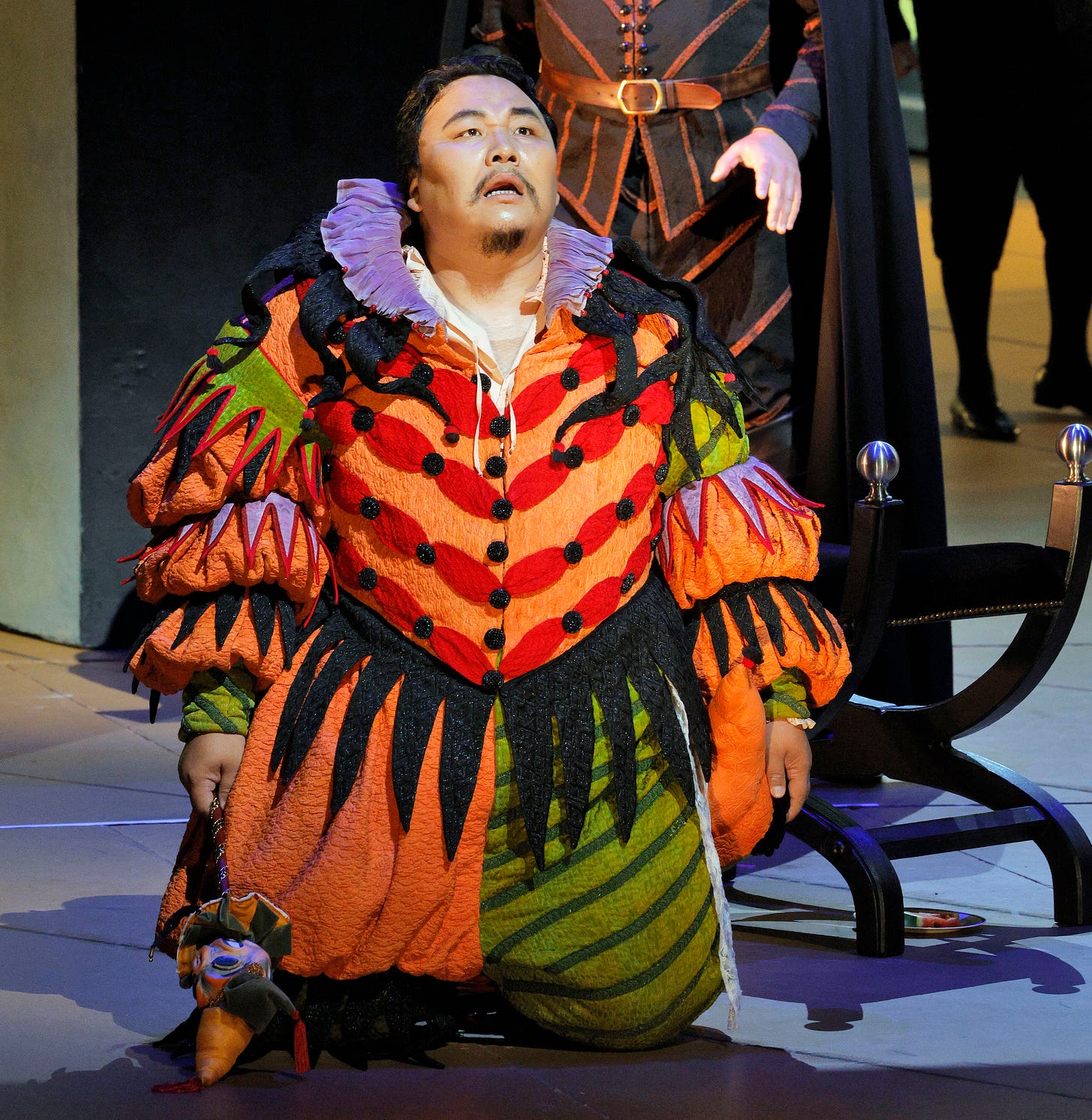
Opening night of the San Francisco Opera season is always a slightly precarious undertaking. The difficulty, as with any gala affair, is that the audience is comprised — not entirely, but more than usual — of moneyed swells who might be less interested in the performance than in the air kisses before and the party afterward. The Symphony can, and often does, simply serve up pablum that doesn’t demand anyone’s attention. But the Opera doesn’t really have that option; there’s nothing in the standard operatic repertoire as flimsy or vacuous as a piano concerto by Saint-Saëns.
On Friday, the company solved the problem with elegant simplicity, by presenting a production of Verdi’s Rigoletto so superbly cast, so skillfully executed and so gripping on an emotional and theatrical level, that, to quote Arthur Miller, attention must be paid. This was among the finest opening nights I’ve ever witnessed in the War Memorial Opera House. It was also, I think, the best Rigoletto I’ve ever experienced — or at least, the best one I can remember experiencing.
Pardon my gush.
In response to the obvious next question — OK but what, specifically, was so great about it? — I’m not sure I can do better than to gesture broadly at the stage and stammer, “Well, um, everything.” But let’s try to take an inventory.
First of all, I can’t remember the last time I’ve seen an operatic production of any kind in which every single member of the cast, from the principals down to the off-and-on-with-a-couple-lines folks, was this committed and astonishing. Leading the pack, of course, was the Mongolian baritone Amartuvshin Enkhbat, who followed his terrific company debut in last season’s Un Ballo in Maschera with an even more arresting performance in the title role. Enkhbat pulls off the double achievement of taking up a lot of space, vocally as well as physically, while investing his artistry with a wealth of pinpoint detail. The particular cocktail of rage, tenderness, terror, and grievance that makes Rigoletto such an indelible character came through clearly in each moment of the opera. His first and last duets with Gilda, each one laced with love and sorrow, landed perfectly; I’m not ashamed to say that I sobbed like a small child through the last 10 minutes of the opera. The opera’s great centerpiece, Rigoletto’s extended solo “Cortiggiani!” — in which he curses his tormentors, then tries in vain to appeal to their humanity and is finally reduced to pleading, his dignity all but gone — was a master class in how to use music to convey these sorts of emotions.
Gilda, his daughter, was sung by soprano Adela Zaharia with a thrilling combination of power, tonal beauty, and precision. There are sopranos who sing “Caro nome” with a sort of ethereal shimmer, as a way of underscoring Gilda’s sheltered naivete. Zaharia took a different tack, giving the aria plenty of tonal body without sacrificing anything in the way of clarity or grace. The implication was clear: This was an ingenue just waiting to break out of the restrictions placed on her life by her beloved father. The rest of her performance was similar — sinewy, robust, and theatrically engrossing. I was surprised to learn that this was not her company debut: How could I have encountered such a dazzling artist before and yet retain no memory of it? The explanation, I think, is that she was Donna Anna in the company’s weird and woeful Don Giovanni of 2022, and not much of that bears remembering.
I said everyone in the cast was superb, and I did not lie. Tenor Yongzhao Yu made a bright and sonorous house debut as the lecherous Duke of Mantua, and Peixin Chen, at the other end of the vocal range, brought his gloriously cavernous bass to the role of the hired assassin Sparafucile. (He’ll be back in November for the world premiere of Huang Ruo and David Henry Hwang’s The Monkey King.) Add to that the luxury casting of mezzo-soprano J’Nai Bridges as Maddalena, baritone Aleksey Bogdanov as Monterone, a passel of Adler Fellows, and the singers of the Opera Chorus led by John Keene, lighting up the stage at every turn. It’s brilliance all the way down.
We’re not done yet. The Opera has a gorgeous production of Rigoletto in house, with sets by Michael Yeargan and costumes by Constance Hoffman that use the distinctive visual world of the painter Giorgio de Chirico as a shadowy landscape. It premiered in 1997, with four revivals in the ensuing two decades. It seemed too much to hope that it would be back again — but to my joy and surprise on coming into the house, there it was, as crepuscular and eerie as ever. (Yeah, yeah, I could’ve checked ahead of time.) Director Jose Maria Condemi deployed the stage dexterously, creating little pockets of intimacy for the characters within the wide-open spaces.
Rigoletto is the latest installment in music director Eun Sun Kim’s multi-year journey through the operas of Verdi and Wagner (the former will presumably last longer than the latter, even though it will have no conclusion as triumphant as the long-promised Ring Cycle). To my ears, it represented her most successful work of conducting to date. The playing of the Opera Orchestra sounded impossibly rich and vibrant, and Kim’s tempo choices either sounded perfect right away, or (like her speedy clip through the first 15 minutes) felt oddly intriguing, then ultimately persuasive. You could hear her sustaining and molding each vocal line with unerring mastery.
If I’m going to persuade everyone to go see this — including first-timers — it bears acknowledging in advance that Rigoletto, in 2025, is deeply problematic. Its sexual politics range from mildly creepy to “aw hell no,” and the plot turns on a contrivance that would seem to defy all psychological sense. I can’t deny these points, even as I cling to my abiding love for the piece; but this has run long enough already, so we’ll have to return to the subject another time.
Rigoletto: San Francisco Opera, through Sept. 27. www.sfopera.com.
Elsewhere:
Steven Winn, San Francisco Chronicle/SFCV: “In a role that can feel too sweet and cloying, Zaharia’s Gilda was imbued with strength and determination. Zaharia’s sense of purpose in the role, which played out to the opera’s shocking end, helped her Gilda sound and seem like a young woman of conviction and consequence.”
Splendor in the grass
When the San Francisco Opera season begins so magnificently, there are knock-on benefits for Opera in the Park, the annual al fresco concert in Golden Gate Park’s Robin Williams Meadow that traditional crowns the opening weekend. That’s because the performers are typically drawn from the casts of the first two operas of the season (those are the singers who are in town). And sure enough, on Sunday, members of the Rigoletto cast, led by Eun Sun Kim, showed up to reassure everyone that Friday night’s excitement had been no fluke.
My only beef with the program was the number of Rigoletto reprises — I imagine this was canny marketing for listeners who hadn’t attended opening night, but those who did found ourselves itching for something new and different. I would certainly have liked to hear Amartuvshin Enkhbat sing one non-Rigoletto excerpt — especially if it had been as lusciously virtuosic as Adela Zaharia’s “Regnava nel silencio…Quando rapito in estasi” from Donizetti’s Lucia di Lammermoor.
But there were other pleasures to be had. Mezzo-soprano Nikola Printz, who somehow sounds more radiant at each new appearance, delivered a fluent rendition of “Vesuvio, il mio unico amico,” the brilliant bit of Bellini pastiche from Jake Heggie’s 2015 opera Great Scott, and Peixin Chin showed off his enormous vocal sound once again in “La calunnia” from Rossini’s The Barber of Seville. There was an ingratiating orchestral selection by longtime Opera Orchestra bassist Shinji Eshima, and to finish things off, a little Rodgers and Hammerstein diptych from baritone Rod Gilfry (“Some Enchanted Evening”) and mezzo-soprano Jamie Barton (“You’ll Never Walk Alone”).
And all of this in the beautiful, grassy outdoors, with the sun beaming benevolently down. What could be more delightful?
Elsewhere:
Sam Whiting, San Francisco Chronicle: “‘Beautiful music, good company, Golden Gate Park. What could be better?’ said Mary Ann Chisholm, who brought 12 people representing three generations of her family from Santa Rosa, Napa and Daly City. She admitted they even missed a cousin’s wedding for the event.”
Cryptic clue of the week
From Out of Left Field #284 by Henri Picciotto and me, sent to subscribers last Thursday:
Mountain boasts high-ranking types (6)
Last week’s clue:
Jam and things (5)
Solution: STUFF
Jam: definition
things: second definition
Coming up
• Berkeley Symphony: The weekend promises a traffic pileup among the region’s largest musical organizations — the gala season opener of the San Francisco Symphony, and new productions at San Francisco Opera and Opera San José — but there’s also a lot of activity on the calendar elsewhere. The Berkeley Symphony begins its season with a concert featuring a guest appearance by French Canadian conductor Dina Gilbert. With cellist Gabriel Cabezas as soloist, the program includes recent works by Samy Moussa and Alyssa Weinberg, alongside familiar fare by Tchaikovsky and Beethoven. Sept. 14, First Congregational Church of Berkeley. www.berkeleysymphony.org.
• Elizabeth Joy Roe: The pianist is probably most widely known as half of the flamboyant and irresistible piano duo Anderson & Roe. But she also maintains a solo career as well, and this weekend she opens the concert season at Noe Valley Ministry with a promising recital whose first half is devoted to keyboard etudes by Samuel Adams, Philip Glass, Scriabin, and Chopin. After intermission she’s joined by violist Meena Bhasin for Brahms’ F-Minor Sonata. Sept. 14, Noe Valley Ministry. www.noemusic.org.


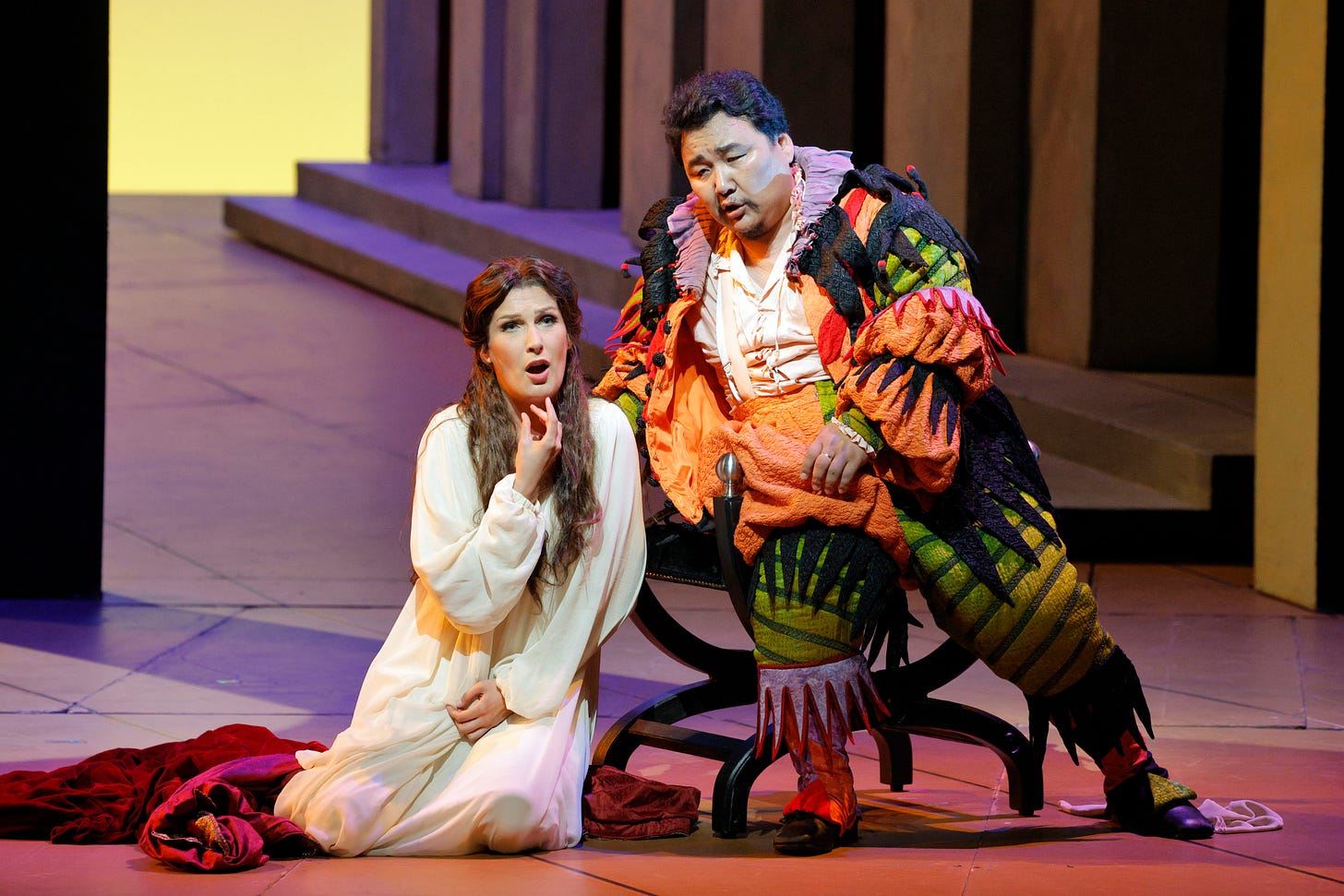
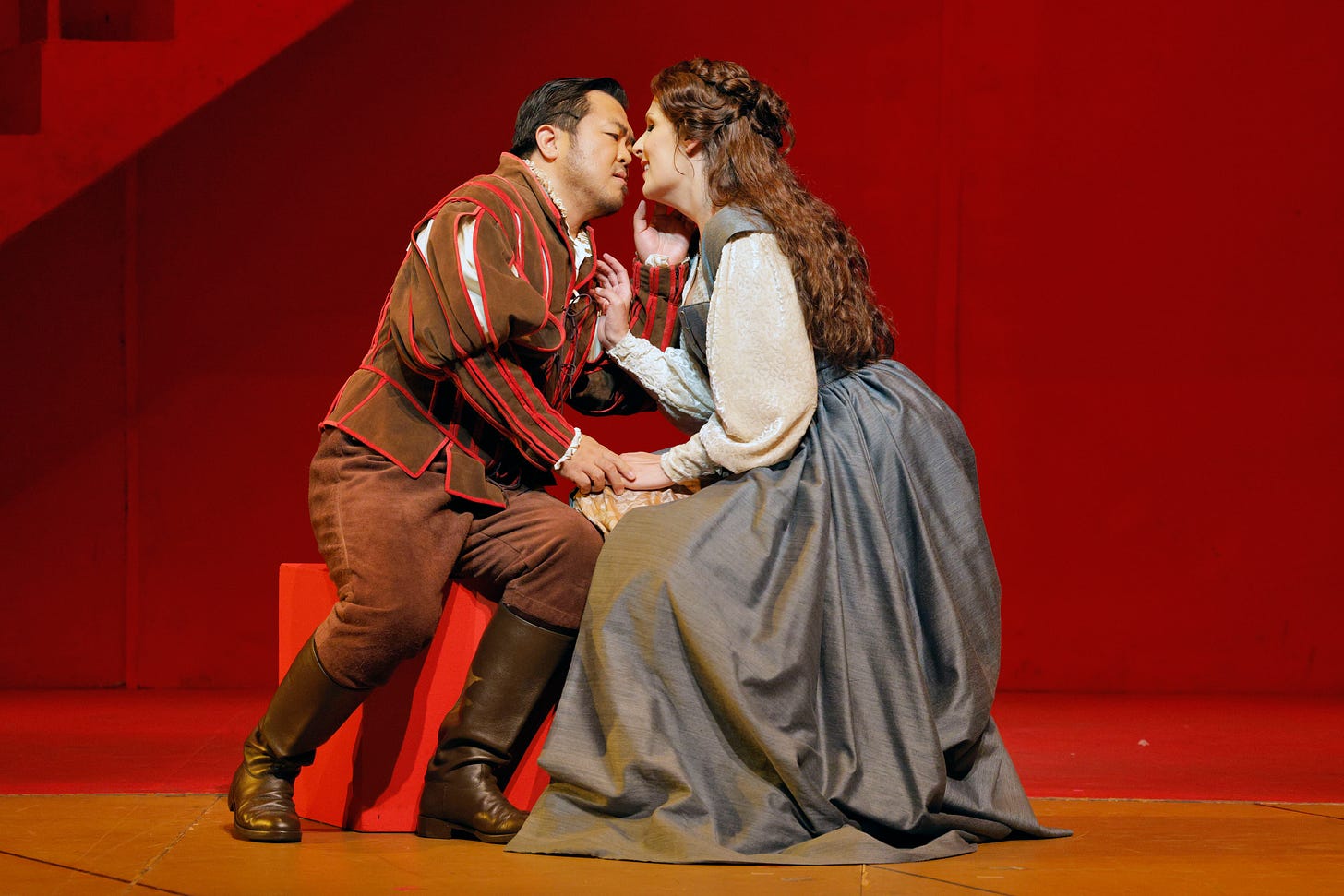
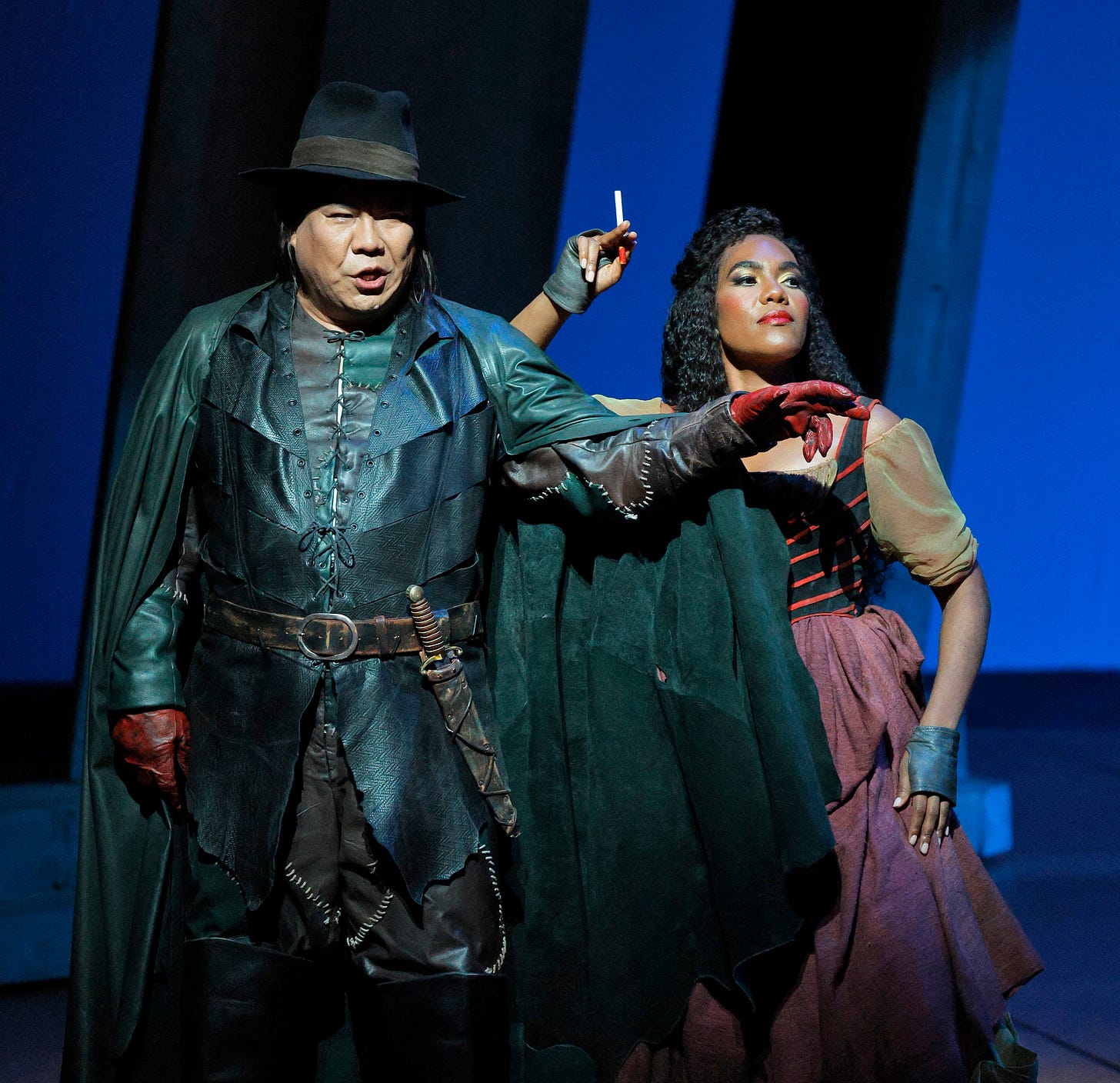
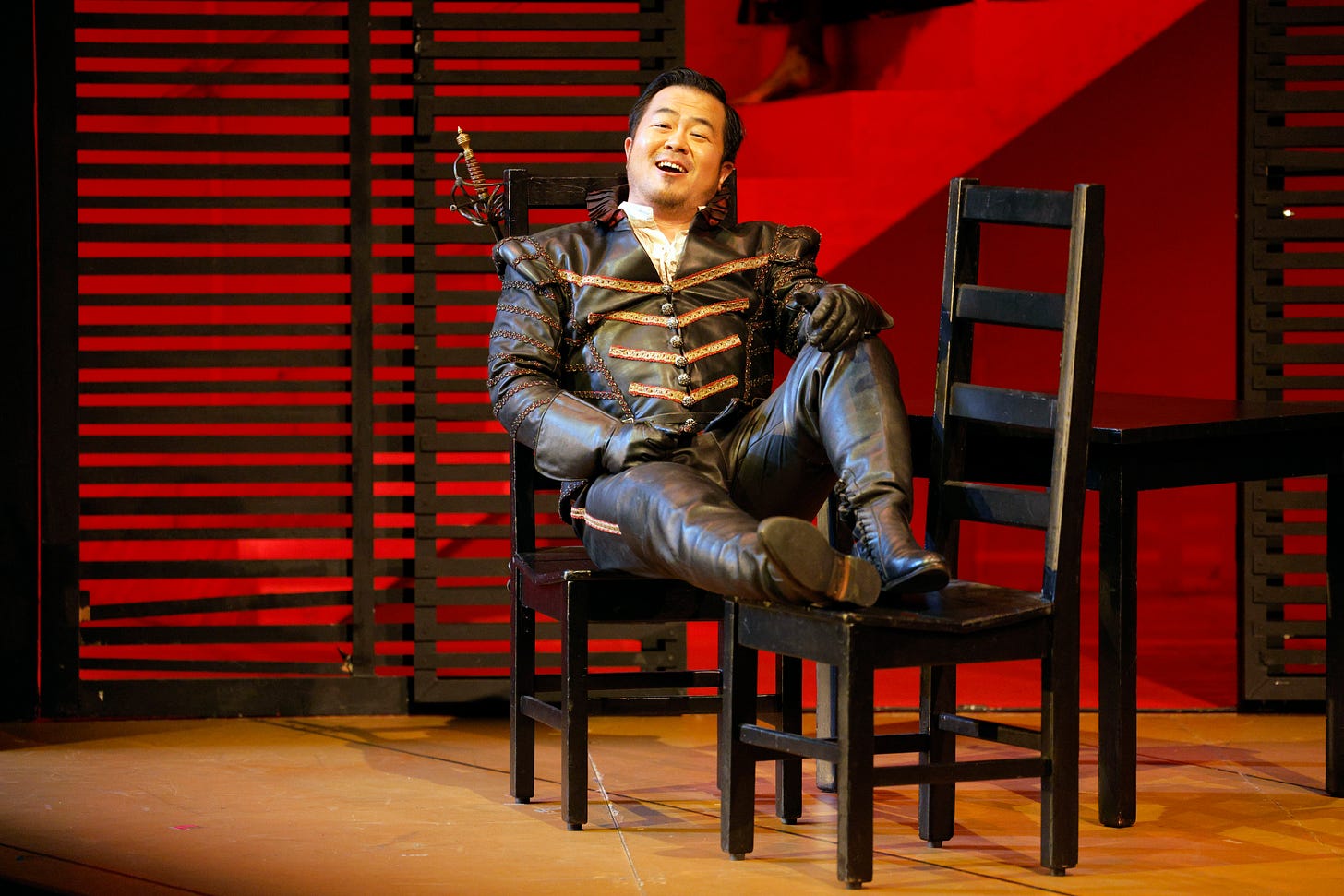
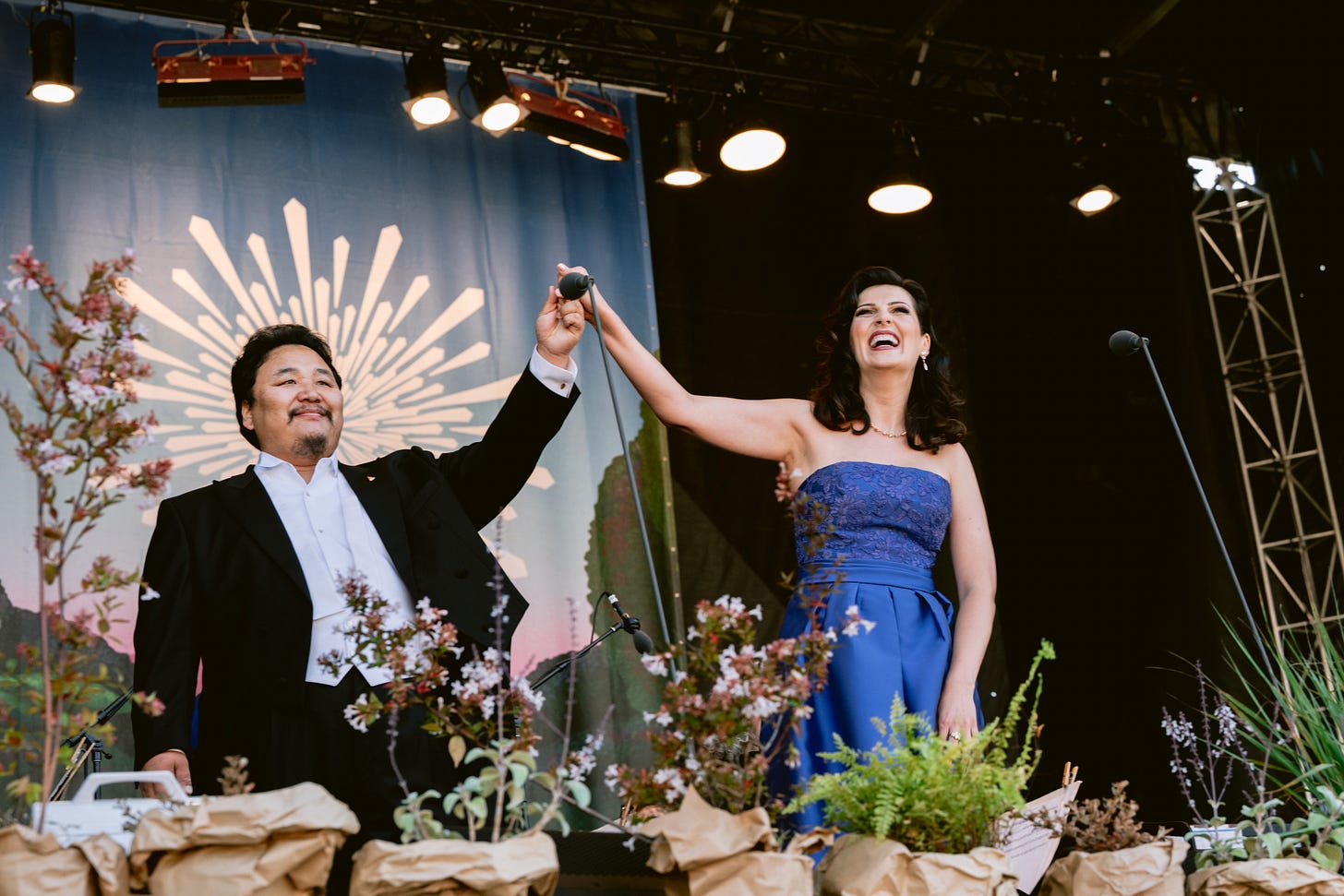
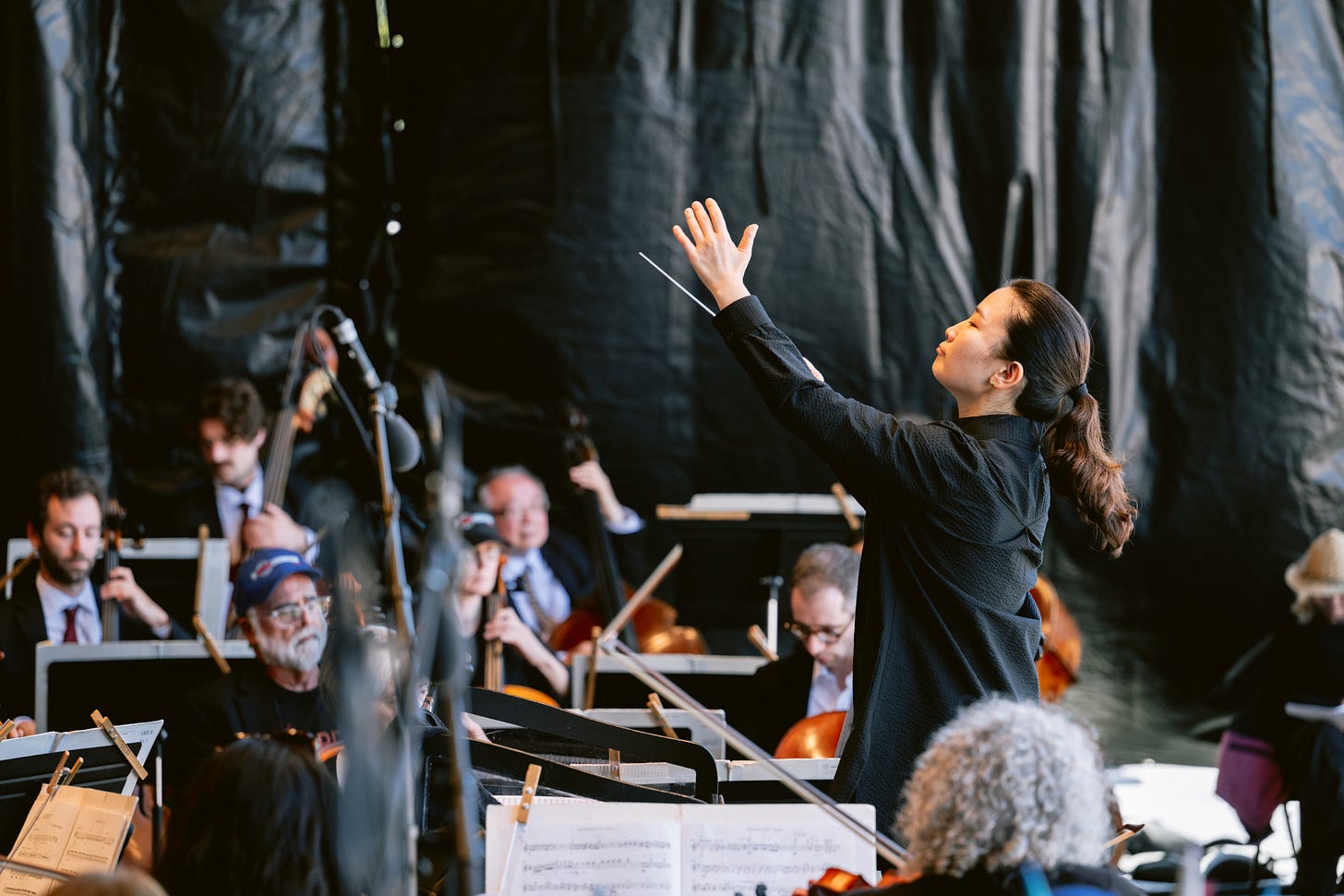
I so wish I could see this production!!! (And write an opera for SF...)